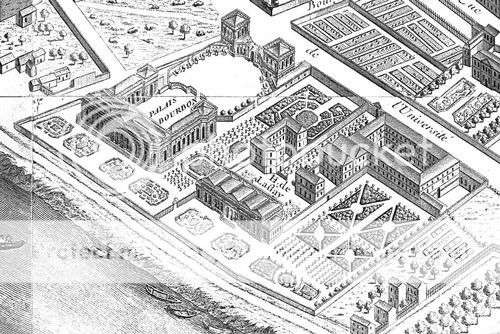Paul-Aurélien was resting at a friend’s estate near Paris when he heard the news of his appointment; grateful though he was for his recent appointment, he couldn’t help but feel more than a little anxious, especially as news of the various leftist groups grumbling over the election results trickled into his ears. The day after the news reached, he dispatched a letter to this King.
The newly installed Secretary of War quickly beings jotting down another letter, addressed to one of his fellow Cabinet-members.
To His Most Christian Majesty, the King,
Your Grace, I would wish to offer my sincerest thanks for this honourable and most noble position as your Secretary for War, a position for which a fear I may not be wholly qualified as of yet to hold, as my knowledge of warfare and strategy is, sadly, wholly theoretical; to rectify this, I request that Your Majesty allow me several months leave, with my duties and orders delivered via various correspondence with Paris, whilst I survey the border provinces and conduct a general, and personal, review of Your Majesty’s Armed Forces. As I am absolutely certain Your Grace is fully aware, there are murmurings across the whole of France of potential war against this Kingdom, likely to be endeavoured by our various neighbours, both highly and plainly ambitious to witness our ruin, and equally fearful of the recent events that have unfortunately destabilised the realm. I believe that it is in the best interest of my person, the realm, and for Your Majesty, that I be granted this momentary leave, likely to take several months, to become fully and intimately attuned to the status and needs of the Army.
Once again, I thank Your Majesty for this great privilege and honour to serve France in this capacity.
Sincerely, Your Loyal Minister,
Paul-Aurélien de St Sebastien, Baron d’Harfleur in Pretense, and Secretary of State for War
The newly installed Secretary of War quickly beings jotting down another letter, addressed to one of his fellow Cabinet-members.
Paul-Aurélien, still not quite content with himself, then proceeded to write several dozen letters of a similar nature, addressed to the various generals and admirals of France; he expected many hours of reading and studying to be upon him soon.To His Excellency, the Lieutenant-General of Police, Vincent Parént,
Your Excellency, I have in my brief time serving within this esteemed cabinet, learned of your former profession as an artillery officer within our Majesty’s Armed Forces; I believe it would be highly beneficial in my capacity as Secretary of War to learn as much as I can in the maintenance and general governance of the military, particularly the artillery forces, which I am convinced will prove to be decisive in future land battles, if the current progress being made to them, and the tactical brilliance of the late Lion of North is to be believed. In short, I would request that you provide with me a brief manual or journal of sorts, detailing your time within the Armed Forces, providing frank and honest reviews of your commanders and the tactics they favoured and disfavoured, as well as any commentary on your views of our forces in any way shape or capacity; I believe that such intimate knowledge, and simple earnest critique, will ensure that the French Army maintains its position as the premier land force of Europe.
Sincerely,
Paul-Aurélien de St Sebastien, Baron d’Harfleur in Pretense, and Secretary of State for War











